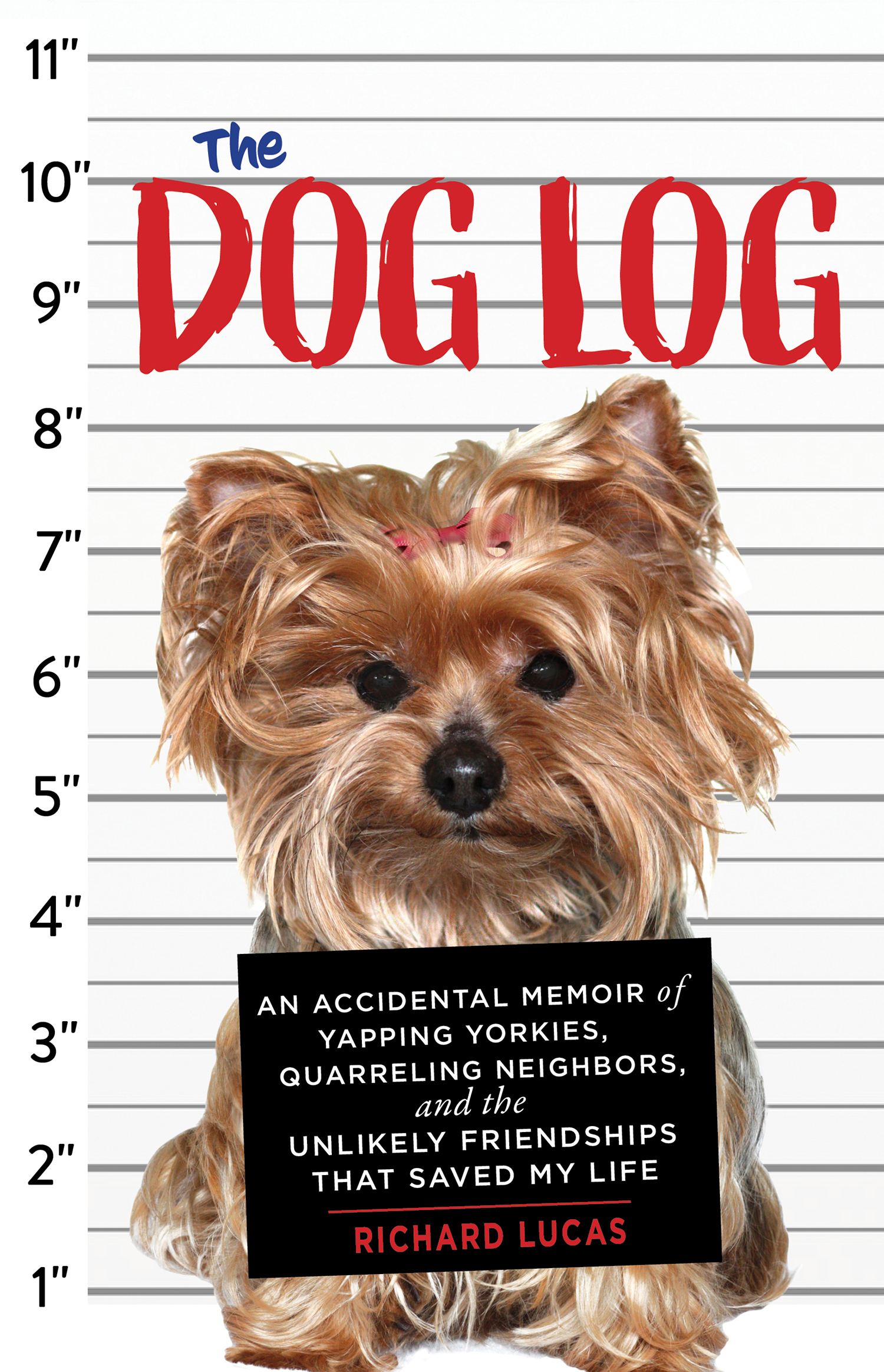The Dog Log by Richard Lucas is a hilarious, acerbic, heartbreaking, and ultimately joyous memoir of finding companionship through the frustrations of living next to a barking dog and an oblivious neighbor. With humor and honesty, this story looks into big-city loneliness, heartbreak, and, ultimately, old age, but then climbs into the light. When one man knocks on his neighbor’s door, his life changes forever.

In the interview below, author Richard Lucas discusses the difficulties and joys of writing and the fascinating journey of transforming his comedy sketch into what became The Dog Log.
The Dog Log, written as a daily notation to the sheriff’s department, begins as a simple complaint about a barking dog, but it soon becomes a powerful self-exploration and confessional. What was your experience putting those raw, powerful emotions on the page?
It was very difficult. Fortunately, I’d had some experience on stage going to those emotional places, both as an actor, as a musician, and at storytelling shows performing my own work. I believe that sadness is a major source of comedy. The challenge is in facing that, thinking about things that most people work hard to put behind themselves and lock away. A benefit of the writing process is that it slows things down, just the very nature of rewriting and editing, and all the sleepless thinking in between. There is a therapy in that. Though there were many many tears while writing at my kitchen table, you can get used to being more comfortable dealing with issues through writing about them.
The Dog Log started out as a comedy show in L.A. What was the process like turning the sketch into a book?
It was very fun, maybe because I’m very comfortable working in and carving out absurdity (thus my Bono and The Edge Waiting for Godomino’s parody of Beckett’s Waiting for Godot). Because I had the structure of writing to the Sheriff’s Dept., I already had the conversation started, and so telling my story to that anonymous authority felt oddly comfortable. It also made me laugh because of how avoidant it is to write such personal things to a stranger, rather than a face-to-face exchange, yet I felt OK revealing parts of my life that even family members didn’t know.
As a first-time author, what did you learn from publishing your first book?
I learned that it’s life-changing to have a team working in support of one’s art. Because The Dog Log is such a personal book, I knew from the beginning that I did not want to self-publish. I thought I’d feel safer and more comfortable with a higher, professional stamp of approval on the work. But I also knew how difficult it is for an unknown, first-time author to get published. So it took a lot of time to get through the challenges of finding that team, and that took a lot of patience and belief in the book as months crawled by. But it’s worked out so well, and I’ve learned that patience can be managed and beneficial. I’m going to employ that in other parts of my life. I’m so grateful to CRP for all their work and support.
What do you hope readers will take away from reading The Dog Log?
A major theme, or perhaps, better put, a feeling, or even a reminder, that arises after the finish of the book is, I hope: love thy neighbor. There are no politics in The Dog Log. There are no hidden allusions to politics in the book—at all. Yet I feel it’s as politically relevant as any other work because we’ve lost our ability to have respect and open mindedness toward the people around us. It feels, at least via the louder more vitriolic voices out there, that we’re working in the opposite direction, trying to find enemies based on how people think. That will only harden hearts and minds. I don’t want to get all “Bono” on everyone, but I hope that The Dog Log might inspire a little volunteerism, or even just friendliness, to the people right nearby, or even next door, and maybe a butterfly effect of kindness can become a stronger vibe than isolation and enmity.
What five people—living, dead, fictional or nonfictional—would you have over for a dinner party and why?
Learn more about The Dog Log!
No Comments
No comments yet.